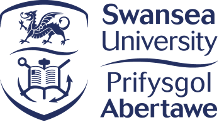Completed: Sustainable Investment Assurance Model: SIAM
In collaboration with CR Plus Ltd. and BSI
The project extends the multifaceted sustainability modelling from steel to other FIs. Consultation with each sector was conducted to review the existing SIAM framework and adapt measurements concerning circularity, direct/indirect energy consumption maps, economic drivers versus policy constraints and proportional representation of workers, working conditions and wealth disparity. The primary outcomes are summarised:
i) Decarbonisation/sustainability improvements from environmental perspectives are significantly skewed to the use of additional energy requirements for either heat, transport, or reduction of material. The UK has a relatively well-developed renewables portfolio on the grid, however over short time scales an increase in energy demand can only be met through the use of non-renewable energy production methods. Consequently, until further development of a renewable energy grid with overcapacity is achieved there is minimal gain to be made from altering production methodologies.
ii) Volatility in supply chains is a major factor which can affect every aspect of sustainability. Without control and consistent supply of materials, validation and representation of sustainability credentials is not only meaningless but potentially unethical to provide to consumers as a purchasing motive. Supply chain volatility is a big risk factor under current global influences such as COVID pandemic recovery, Brexit, war in developed nations and the forecast recession. These factors create an economic reluctance to both invest from an initial financial basis, but also from a point to minimise further disruption from current manufacturing methodologies. De-risking supply is another overarching theme which must be tackled to shift to sustainable practices.
iii) Data quality continues to be an issue. SIAM developed databases for each case study, mined from the literature which required significant time and expertise. Known data was inputted into databases when available but over 75% was obtained from open-source unverified literature. Such data collection is time consuming and expensive but with investment in capex across multiple industries a necessity to meet sustainability targets, it is essential and if integrated from the outset, significant improvements could be made and realised with minimal cost and impact.
Current discussions are ongoing with several companies on how SIAM can be used to quantify sustainability improvements of future capex investments. A limited version of the framework has been supplied to government organisation for internal use on investment decision making. The tool is also being openly used within several large companies to validate sustainability investment plans both in the UK and international operations. The benefit of SIAM to the built environment is to facilitate informed decision making amongst stakeholders such as the Foundation Industries, national and local government and construction companies in their drive to reduce the carbon footprint.

Dr Stephen Spooner
Coventry University (formerly University of Swansea)
stephen.spooner@coventry.ac.uk
Stephen is associate Professor at Coventry University. Previously Stephen worked in the areas of liquid metal processing and sustainable manufacturing at the University of Warwick, ranging from projects investigating the fundamentals of interfacial phenomena between liquid steel and slag, to the macroscopic material flows of steel through life cycle as an enabler for decarbonisation within the UK.
Published: February 11th, 2022
Posted in
projects





